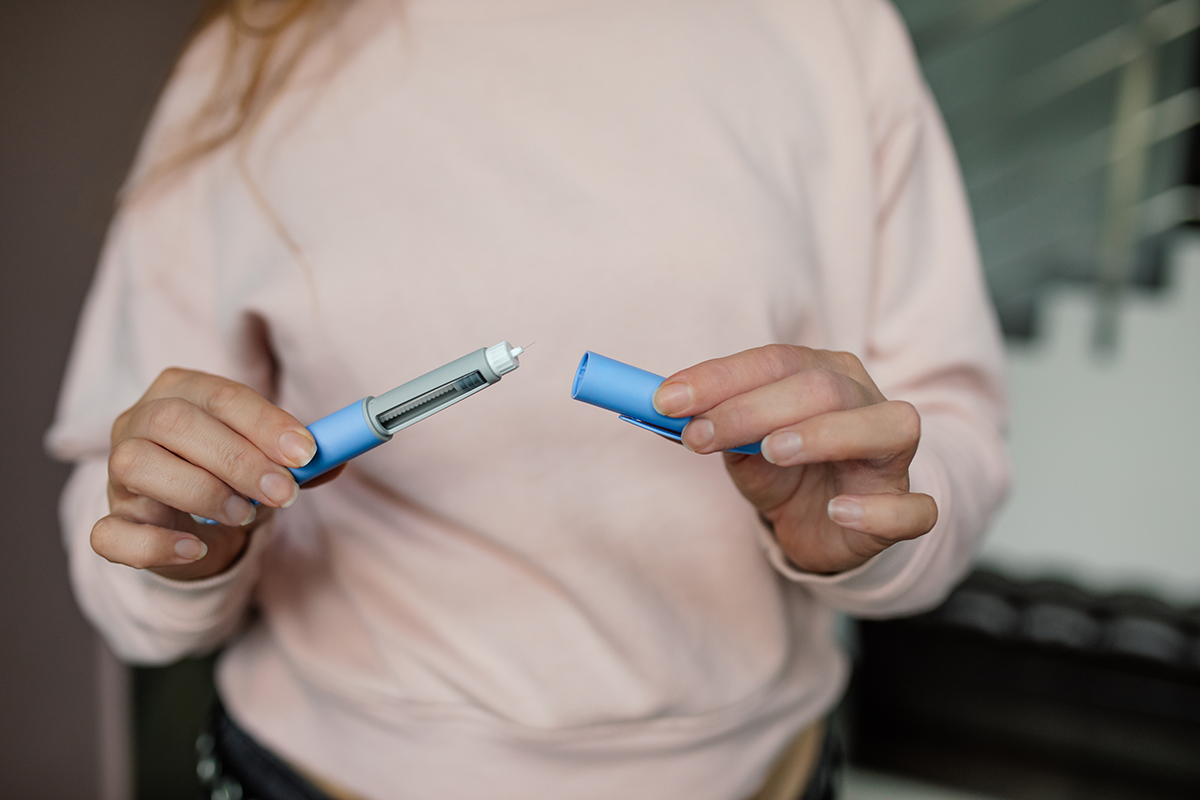Stimulant safety: Treating attention deficit hyperactivity disorder (ADHD) with medication

Stimulants are the medication of choice to treat ADHD, but they do pose certain risks, especially in patients with certain heart conditions.
ADHD is one of the most common neurodevelopmental disorders in children, affecting more than 6 million children in the U.S.1 It’s characterized by symptoms like trouble concentrating or finishing tasks, being easily distracted, fidgeting or being unable to sit still, frequently interrupting people, and forgetting or losing things. This behavior can often last into adulthood.
According to the Centers for Disease Control and Prevention (CDC), about 3 in 4 children diagnosed with ADHD receive some type of treatment.1 For children 6 and older, the American Academy of Pediatrics recommends a combination of medication and behavior therapy, with stimulants being the first treatment recommended.
We spoke with Amy Kochins, a registered pharmacist with Express Scripts® Pharmacy, about stimulants for the treatment of ADHD, including how they work, tips for managing side effects, risk factors to consider when taking this type of medication, and ways to monitor for medication addiction and misuse.
What are stimulants?
There are two different types of stimulant medications: methylphenidate, the active ingredient in Ritalin® and Concerta®, and amphetamine, the active ingredient in Adderall® and Vyvanse®. Stimulants work by increasing the feel-good chemicals norepinephrine and dopamine in the brain. These chemicals may help make children feel less distracted, less hyperactive, less impulsive, and more focused.
Both types of stimulants are available in short- or long-acting form. Short-acting stimulants last for 3 to 4 hours and start working within 30 to 45 minutes. Long-acting stimulants gradually release throughout the day and last for 6 to 8 hours.
Kochins said some children may benefit from long-acting stimulants because of their convenience (taken once a day) and because they typically lead to fewer breakthrough symptoms and side effects.
Stimulants are recommended as the initial treatment for ADHD. However, treatment shouldn’t end there.
“Medication alone may not be the best way to manage ADHD,” said Kochins. “It can complement other strategies like cognitive behavioral therapy, mindfulness coaching, and counseling.”
Stimulant side effects
Stimulants are the most effective type of medication for managing symptoms of ADHD, but they can come with a variety of side effects. These include:
- Loss of appetite (which can lead to stunted growth in children)
- Insomnia
- Headaches
- Mood changes
- Tics, which are compulsive, repetitive sounds or movements that are often difficult to control (can occur in about 10% of people)
Kochins said that most side effects will improve for most patients within 2 to 3 weeks of continuous use. However, some ADHD symptoms and medication side effects overlap and can be made worse by stimulants. In these situations, Kochins recommends reaching out to the doctor to figure out if a dosage or medication change is needed.
Managing stimulant side effects
There are a number of different things patients and caregivers can do to help manage side effects from stimulant medication, Kochins said.
- If they take a long-acting stimulant and notice symptoms like mood changes or irritability from their medication wearing off too soon, sometimes adding an afternoon dose of a short-acting, immediate-release stimulant can help. Kochins suggests speaking with the doctor before making any medication changes.
- If they experience headaches, they can try taking acetaminophen (Tylenol®).
- To minimize nausea or loss of appetite, Kochins recommends taking stimulant medication either with, or just after, a meal.
- If they experience insomnia, Kochins suggests taking stimulants as early in the day as possible, even if they feel like going back to sleep. Read more about medications that can affect sleep.
- If they experience tics, Kochins suggests speaking with the doctor about lowering their dose or adding another medication to help, as long as ADHD management is good.
Kochins said all changes in medication should be made in consultation with the doctor and ideally during breaks from school or work.
When to consider non-stimulant medication
Non-stimulants are another medication option if the patient doesn’t respond to stimulants, experiences too many side effects from them, or if there’s concern with substance misuse, Kochins said. However, they’re typically less effective than stimulants.
The most commonly prescribed non-stimulant medications are Straterra® (atomoxetine), Kapvay® (clonidine ER), or Intuniv® (guanfacine ER).
Stimulant safety and monitoring for signs of misuse
As with any prescription medication, stimulants have safety risks. Since nearly one-third of children diagnosed with ADHD carry it into adulthood, it’s important to teach kids about the safe use of long-term medication. This includes things like not sharing stimulant medication with other people and knowing how stimulants interact with supplements, other medications, and caffeinated food or drinks, like energy drinks, that can increase heart rate.
“Generally, prescribing a stimulant does not lead to substance abuse,” said Kochins.
That being said, it’s possible some people may use stimulants for reasons or in a dosage not prescribed to them. The two most common warning signs of misuse are sudden or drastic weight loss, particularly in teens and young adults, and major changes in mood or personality.
Storing all medications in a secure location that is up, away, and out of sight is the easiest and best way to prevent medication misuse by children.
How Express Scripts® Pharmacy can help
At Express Scripts® Pharmacy, we have specially trained pharmacists who understand all the different ADHD medications and the role they play in managing this condition. Our pharmacists are available 24/7 to go over the details of your medication and answer any questions you may have. They also monitor for signs of medication misuse.
Learn more about how Express Scripts® Pharmacy is here for you.
1 Centers for Disease Control and Prevention: Data and Statistics About ADHD (accessed May 16, 2022): https://www.cdc.gov/ncbddd/adhd/data.html.
Posted date: June 07, 2022


